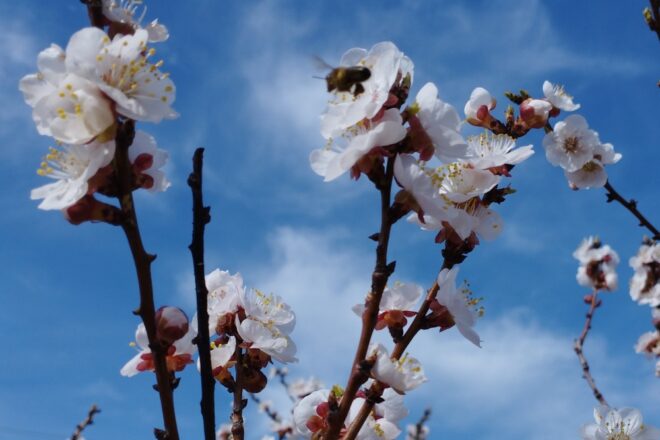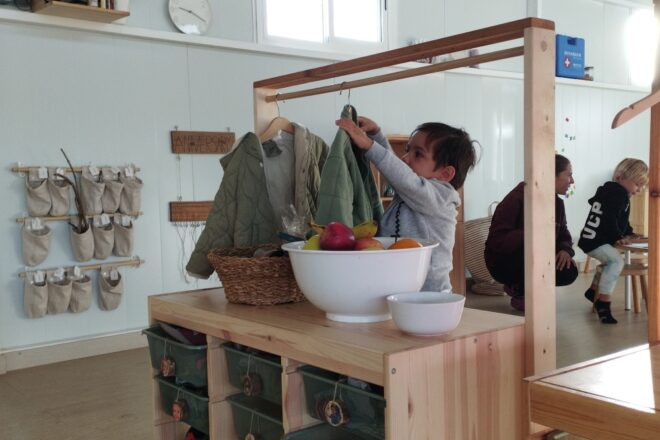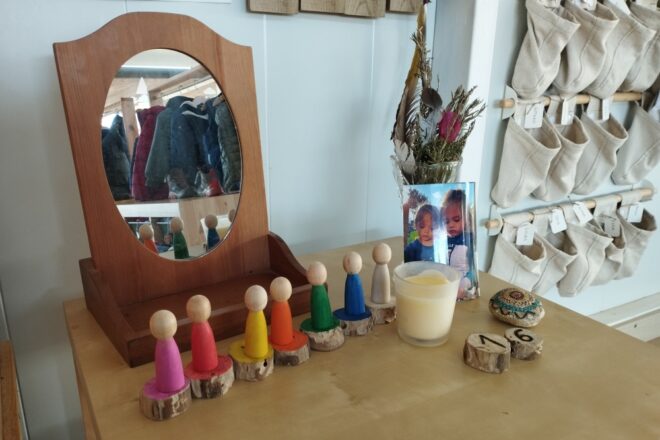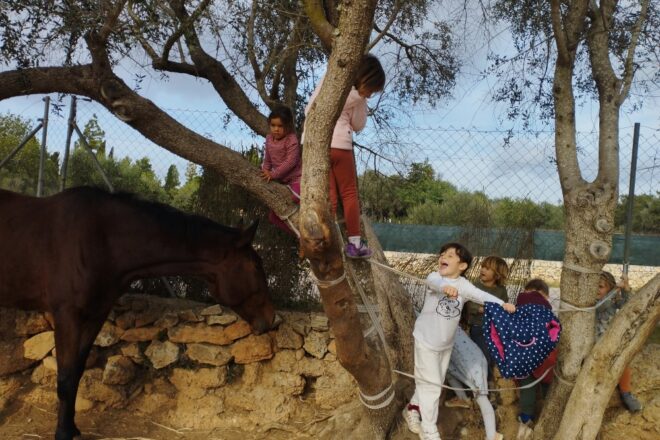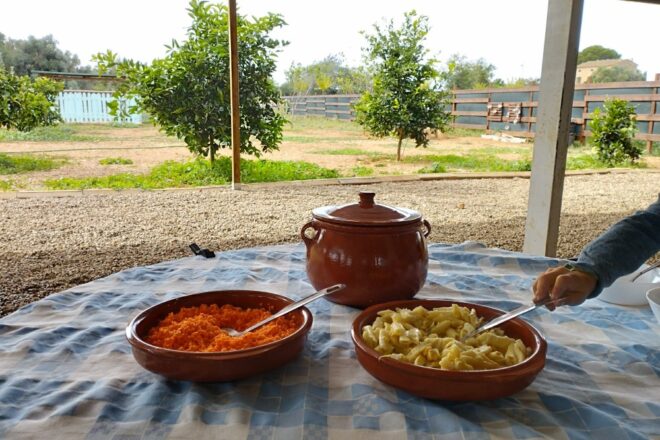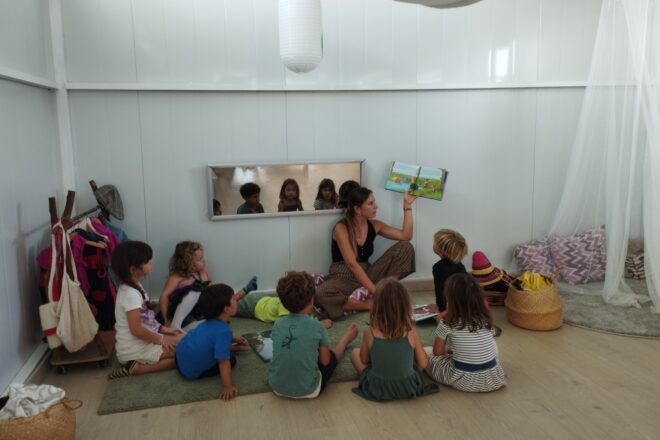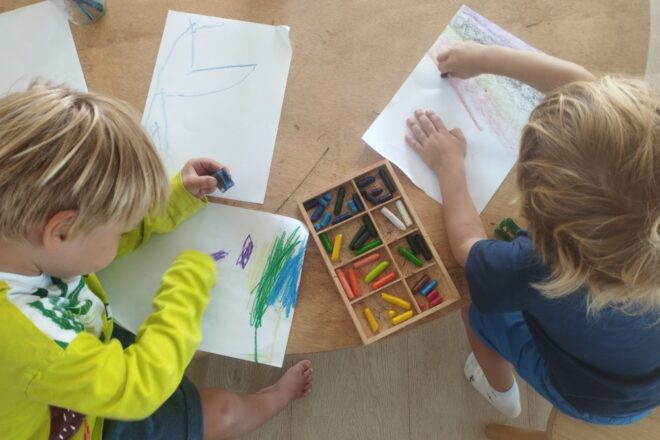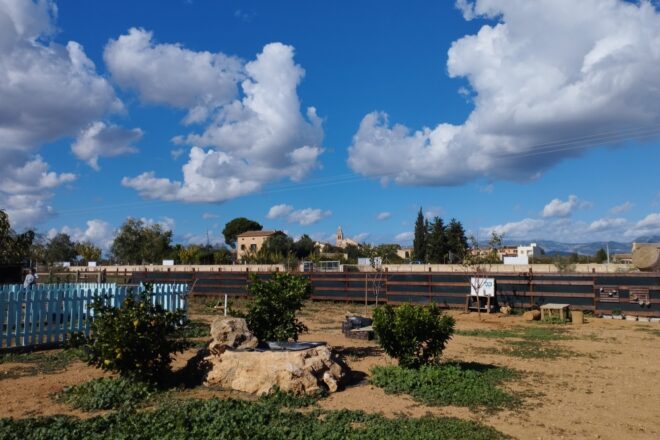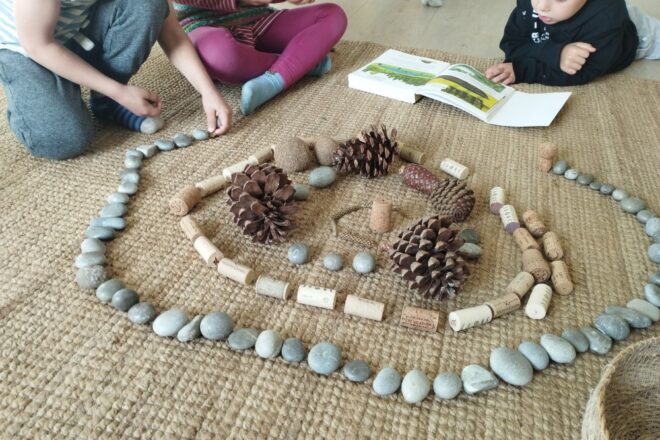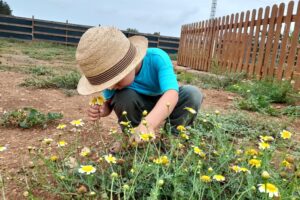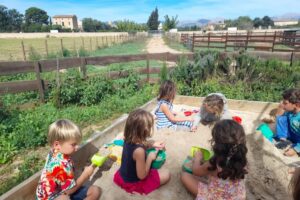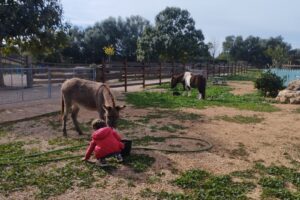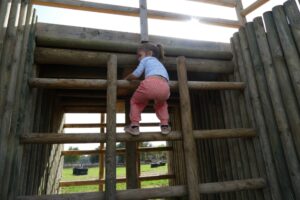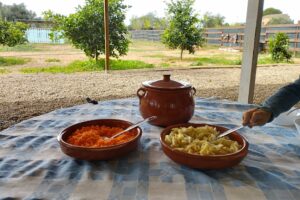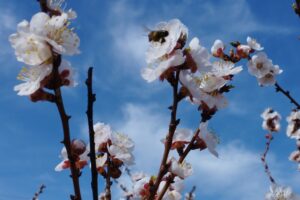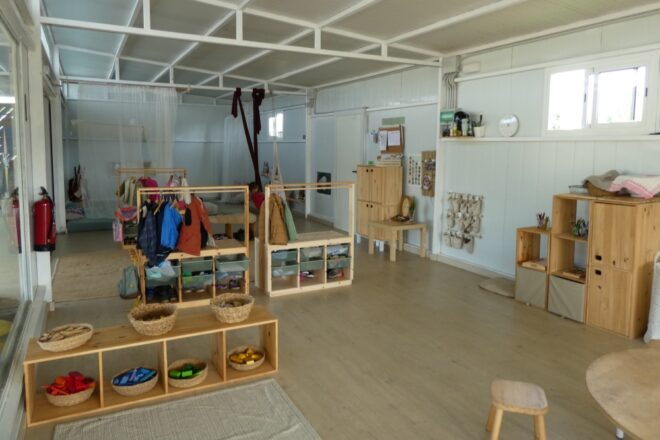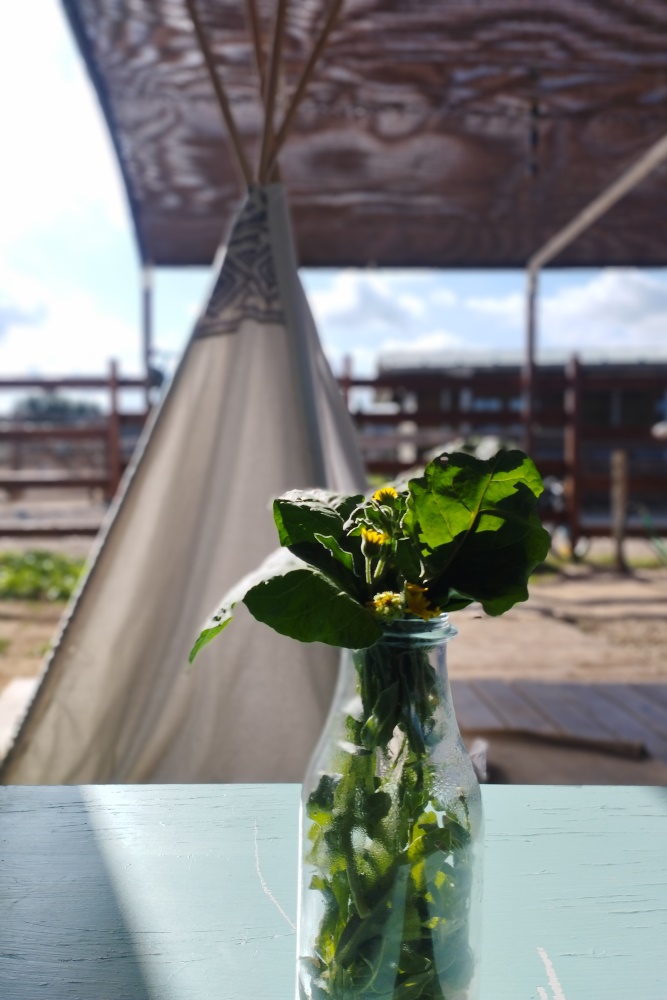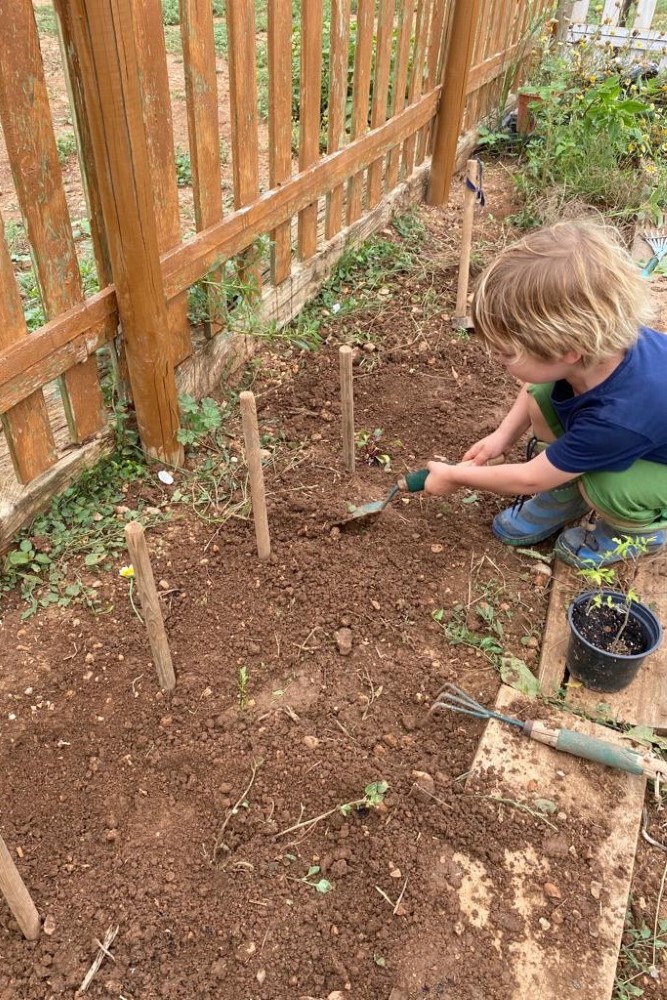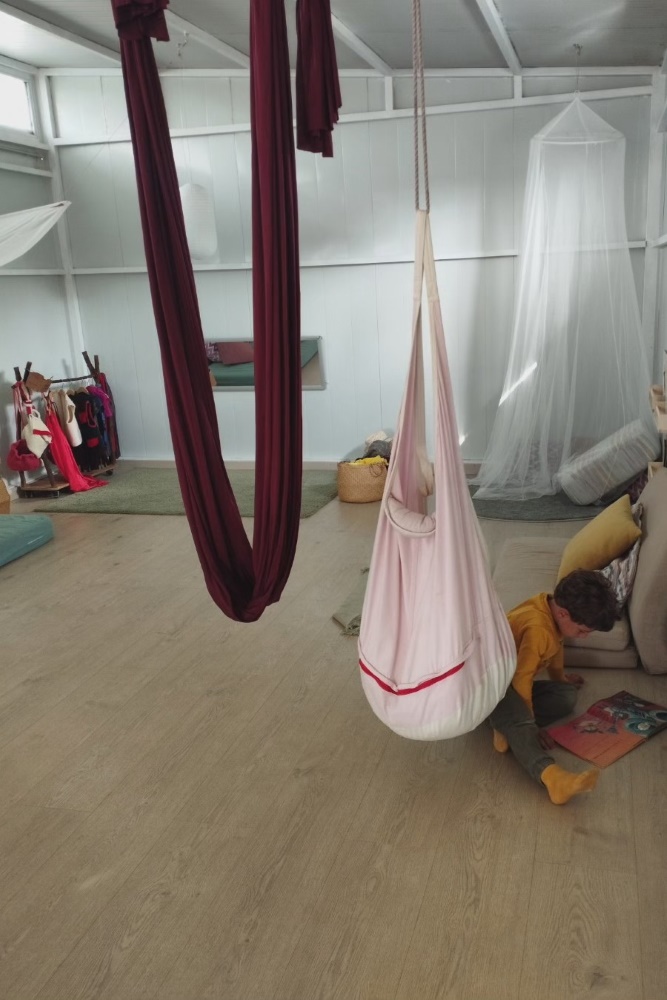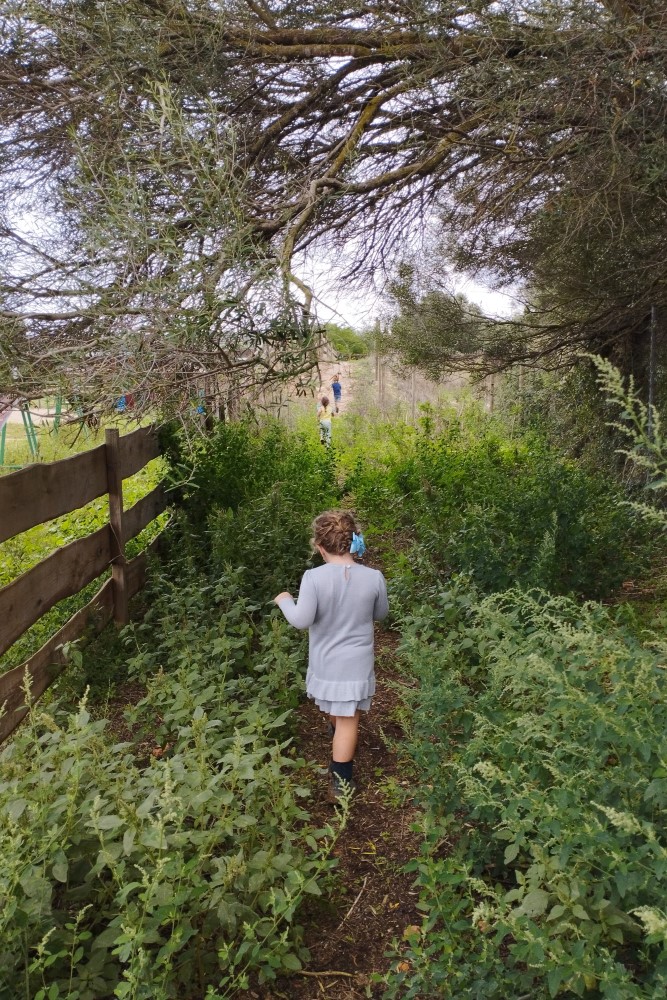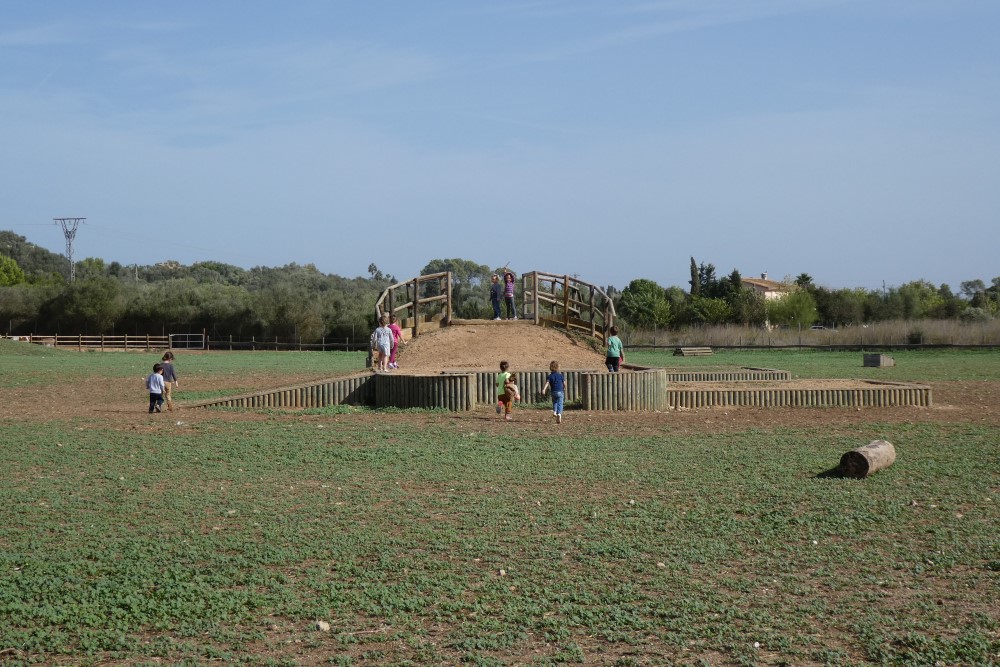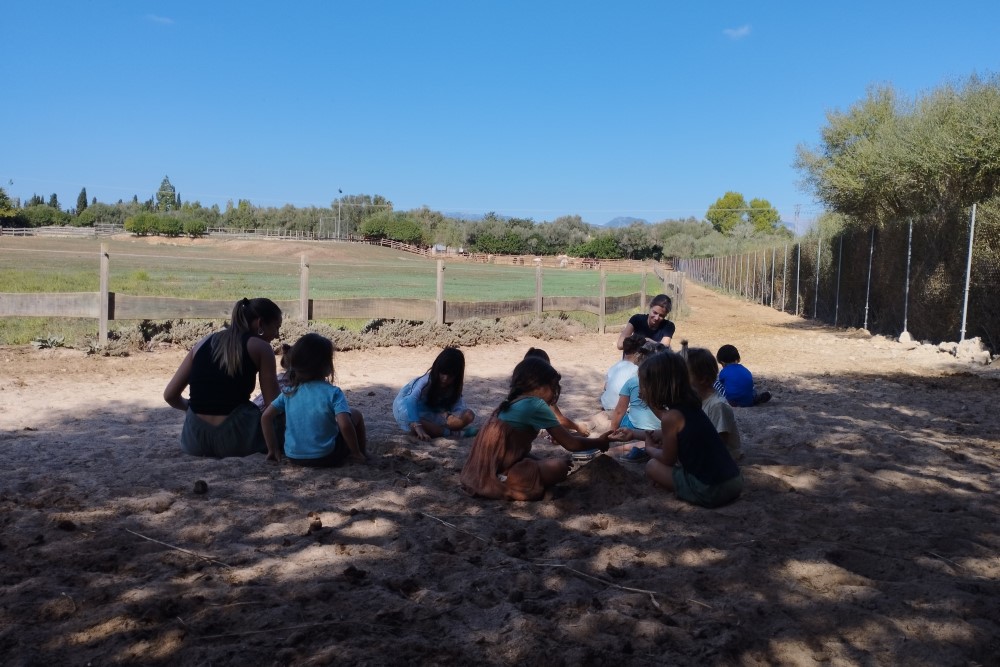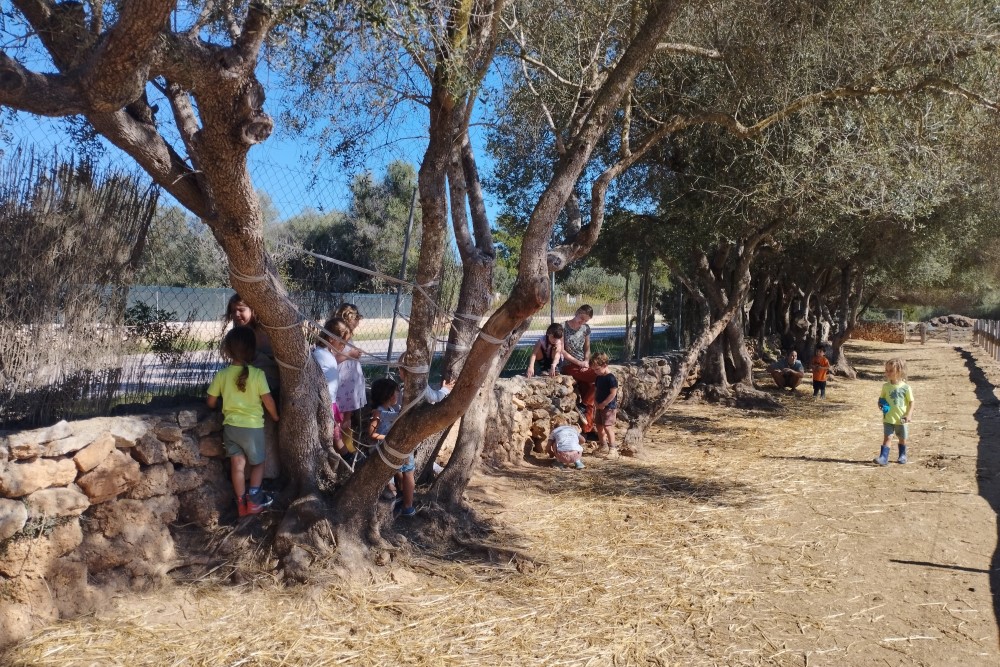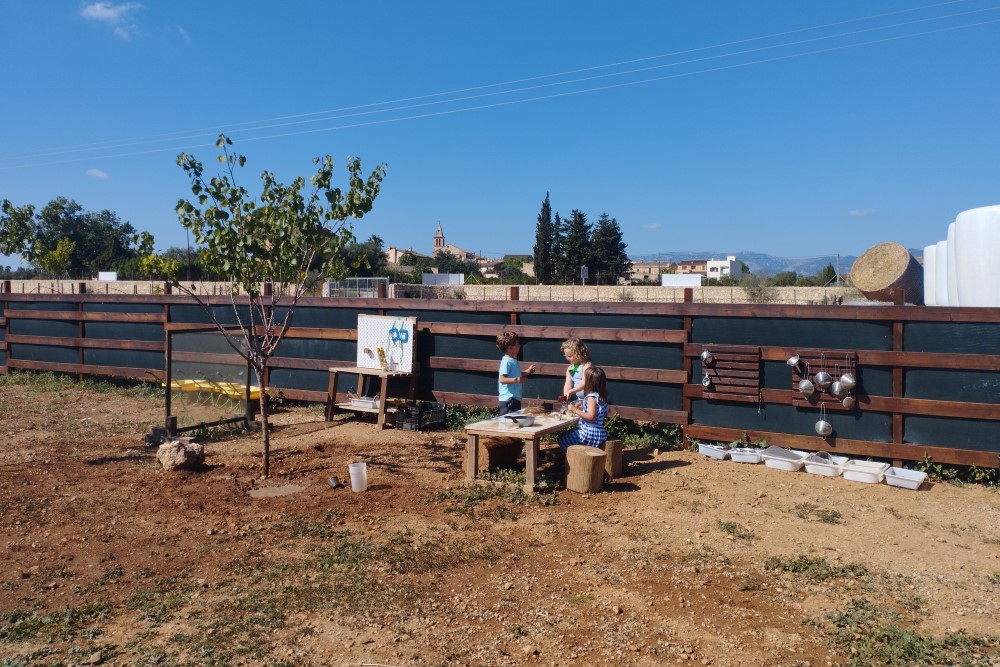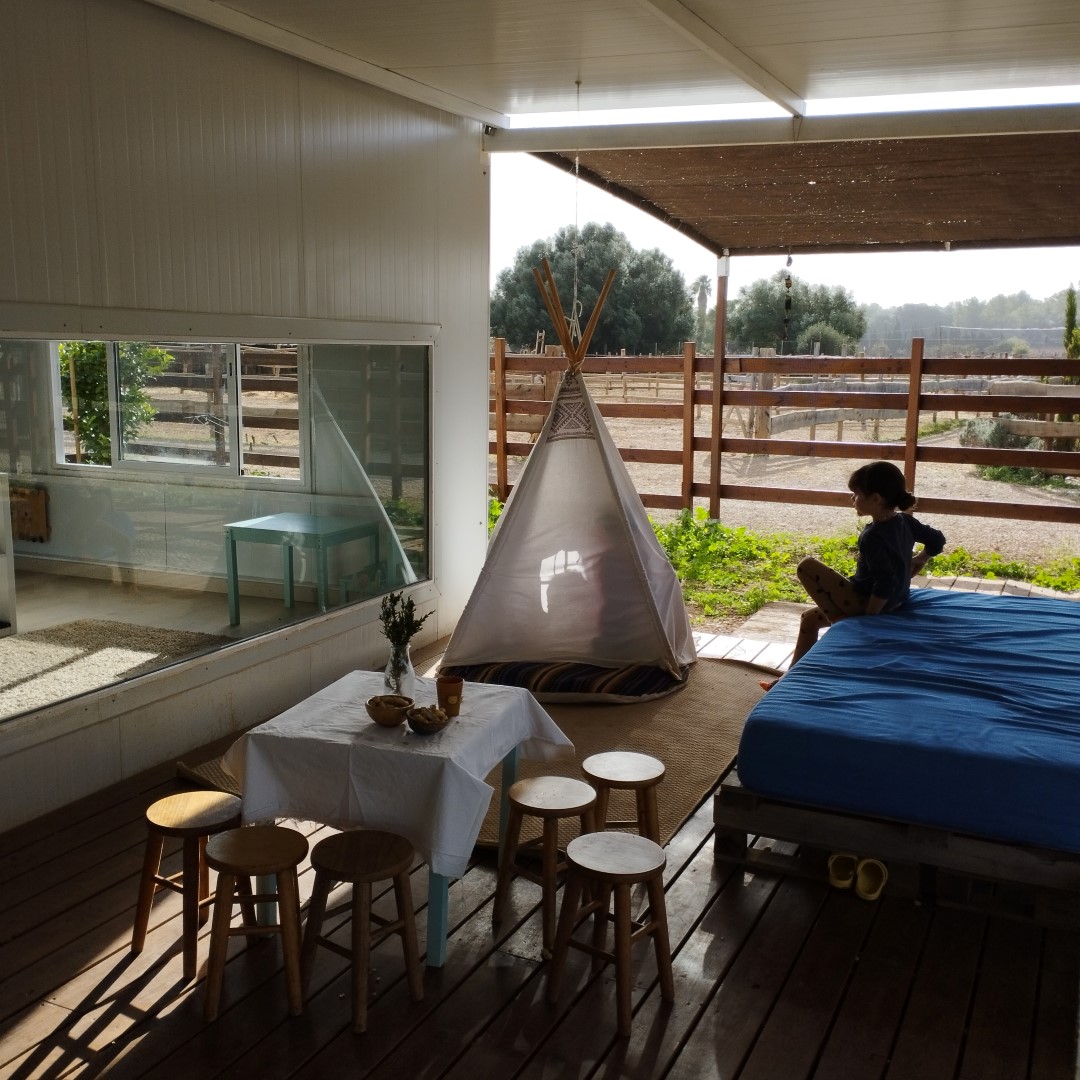We see Nexes as a school, open to the community.
The fundamental objective of the relationship with families is that they get to know, participate, get involved and above all feel included in the school, that they know that they are part of this system that welcomes children and their families in an inseparable way.
For us it is essential that an environment of trust and security is created for all members of the system: children, families, animals, and caregivers.
To make all this a reality, we carry out a series of actions that make the school a familiar and welcoming space in which to belong, create, share, inspire and network:
– Family days in which children, families and companions take part in shared play activities, celebrations, chores and care that the environment requires.
– Pedagogical group meetings with families to transmit a healthy childhood culture.
– Family workshops: mothers and fathers who wish to offer an activity for children during the school day have the doors open to them.
– A minimum of 3 individual meetings/tutorials per year with each family.
– Relaxed entry/exit to/from school, with 30 minutes to accompany the child for a change of scenery.
– Familiarisation and welcome period for children and families new to the project.

